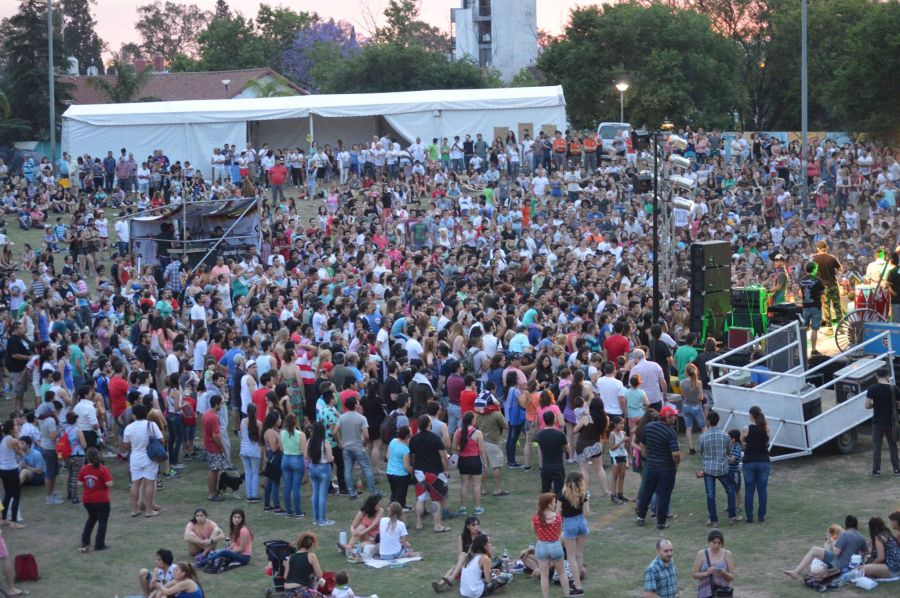
Workshop
Zone freed by joy

On November 19, in Cordoba, Argentina, an event took place in one of the largest parks in the city, to take on additional commitments for social ties, peace, and dialogue.
A “freed zone” usually refers to public spaces where police forces are not active and, as a result, crimes, drug sales, etc. are routinely occurring. This event, vice versa, aims at proposing a different lifestyle, rooted in the culture and context it finds on its way. Hip-hop, city culture, soccer, and freestyle are some of the many activities that aim to attract people and show that this city context can perfectly go hand-in-hand with happiness and the values that go beyond this same context.
The Interreligious Committee for Peace (Comipaz) is one of the social actors which participated in this event with the purpose to overturn the message and culture of waste and consumerism, to say ‘no’ to everything that enslaves, kills, and causes distress. The event was held with the collaboration of the Catholic Church, the Pastoral Ministry for Addictions of the Archdiocese of Cordoba, the Secretariat for Addictions of the Province, and the Secretariat for Prevention of the City of Cordoba.
At the presence of the Catholic bishop of Cordoba and other members of the Archdiocese, since an early hour the square has been crowded with people who wanted to say ‘yes’ to life, joy, and freedom. They carried out various activities together, such as freestyle competitions, sporting events, theater, and zumba, enriched also by the presence of a famous singer of popular music from Cordoba.
Natalia Faraci, member of the youth section of Comipaz and the Coordinating Committee of the Freed Zone, tells us that the event was created three years ago, when a Catholic priest, Fr. Pablo Viola of the Pastoral Ministry of Addictions, convened several organizations to have them participate in the activities of the Freed Zone. The idea was to “set up a project envisaging an event in November each year, with the name of ‘Zone freed by joy’ and centered on three axes: joy, freedom, and life.”
In the three editions of the event, they have always recorded several testimonies of people who at the end of the event, have left having been impressed for finding the strength to go on, to face new challenges, and set goals in their own life. Natalia says that one of the boys who took part in the first edition, while walking through the stands, learned about “calisthenia” (free-body exercise). He was very impressed by the discipline and decided to start this activity, and he later participated in a championship where he got a place on the podium.
This year, for example, they organized a freestyle competition that included soccer, rap, and dance.
“A teacher involved several students to participate in the soccer activity, and one of the boys won the trophy. We later learned that the boy had previously made five attempts to leave high school but thanks to this teacher, who tried to encourage him to believe in his potential and not to give up, he continued. So the one he won was not a simple trophy, because the boy was very impressed for the fact of winning the trophy and that the others encouraged him to continue,” says Natalia.
Therefore, the event did not only have ‘a beforehand’ and ‘an afterwards’ for that student, but also for his class and for the teacher, who found the motivation and the way to show that people should never give up in their struggle for improvement, “to help people get out of their comfort zone and keep moving forward with their lives and goals.”
Natalia also explains that Comipaz is a non-profit organization made up of Muslims, Jews, and Christians – Roman Catholics and Evangelicals – in which “we set up a group of interreligious dialogue, where we do not try to unify religions, or make a merger. We rather aim at dialogue starting from the identity of each one and at achieving agreements to work locally on common objectives.”
One of the most interesting features of Comipaz is to show society that “cohabitation is possible starting precisely from our differences and that we must not be equal to be able to relate to each other. Our main tools are dialogue and empathy.” And she adds, “We try not only to participate in or organize events focused on our values, but also to generate this ‘come and go’ among us, where it also happens that one acquires as one’s own something that is a typical feature of others, but without losing one’s identity.”



